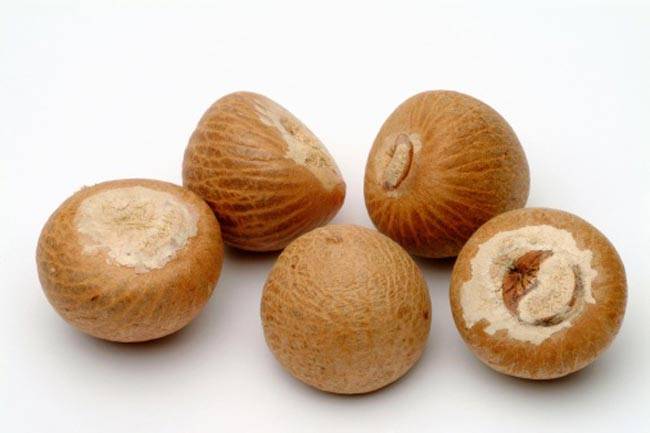Main Points In Hindi (मुख्य बातें – हिंदी में)
-
सुपारी का व्यापार प्रभावित: नेपाल के झापा में प्रमुख नकदी फसल सुपारी का निर्यात रुका हुआ है, क्योंकि संसदीय समिति ने सरकार को निर्यात के लिए डीएनए परीक्षण कराने का निर्देश दिया है।
-
उत्पादन और आर्थिक मूल्य: झापा सहित विभिन्न जिलों में सालाना 15,000 मीट्रिक टन सुपारी का उत्पादन होता है, जिसकी कुल बाजार मूल्य 8 से 12 अरब रुपये है।
-
किसानों का भविष्य不確定: निर्यात बंद होने से लगभग 100,000 किसानों का भविष्य अंधकार में है, और उन्हें सरकारी सहायता और सुविधाओं की कमी का सामना करना पड़ रहा है।
-
डीएनए परीक्षण में बाधाएँ: डीएनए परीक्षण को सुपारी के निर्यात में एक बड़ी समस्या बताया जा रहा है, जबकि प्रयोगशाला की स्थापना अभी तक नहीं हो पाई है।
- स्थायी समस्या के रूप में वन्यजीवों द्वारा फसलों को नुकसान: किसानों ने जंगली हाथियों द्वारा फसलों को होने वाले नुकसान के चलते नकदी फसल सुपारी की खेती की ओर रुख किया है, लेकिन निर्यात की समस्या उनके लिए एक निरंतर चिंता बनी हुई है।
Main Points In English(मुख्य बातें – अंग्रेज़ी में)
Here are 4 main points summarizing the provided text regarding the trade of betel nut (सुपारी) in Nepal:
-
Suspension of Betel Nut Exports: The export of betel nut has been halted due to a directive from a parliamentary committee, which requires DNA testing to confirm the origin of the betel nuts before they can be exported.
-
Impact on Farmers: The halt in exports has negatively affected around 100,000 farmers cultivating betel nut in the regions from Jhapa to Udayapur, leading to uncertainty about their livelihoods.
-
Policy Confusion: The current governmental confusion regarding policies is causing delays, as there is no established laboratory for conducting the required DNA tests to facilitate the export of betel nuts.
- Market Significance: The Betel Nut Farming Development Association reports that the eastern region produces approximately 15,000 metric tons of betel nut annually, with a market value of 8 to 12 billion Nepali rupees, indicating its importance as a cash crop for local farmers.


Complete News In Hindi(पूरी खबर – हिंदी में)
प्रतिनिधित्व के लिए सुपारी/फाइल फोटो
झापा: प्रमुख नकदी फसल सुपारी का व्यापार अधर में लटक गया है क्योंकि एक संसदीय समिति ने सरकार को डीएनए परीक्षण कराने के बाद ही सुपारी के निर्यात की व्यवस्था करने का निर्देश दिया है।
झापा सहित विभिन्न जिलों में सुपारी का उत्पादन कई वर्षों से किया जा रहा है। नेपाल में उत्पादित सुपारी भारत में निर्यात की जाती है।
सुपारी फार्मिंग डेवलपमेंट एसोसिएशन के मुताबिक, पूर्वी क्षेत्र में सालाना 15,000 मीट्रिक टन सुपारी का उत्पादन हो रहा है. मौजूदा बाजार मूल्य के अनुसार, इसकी कीमत 8 से 12 अरब रुपये है।
एसोसिएशन के केंद्रीय अध्यक्ष नीलकंठ तिवारी ने कहा कि नीतिगत भ्रम के कारण निर्यात बंद होने से झापा से लेकर उदयपुर तक सुपारी की खेती करने वाले 100,000 किसानों का भविष्य अंधकारमय हो गया है।
उन्होंने कहा, “संसदीय समिति ने वित्त और वाणिज्य मंत्रालयों को डीएनए परीक्षण के बाद ही निर्यात की व्यवस्था करने का निर्देश दिया है।”
गौरतलब है कि नेशनल असेंबली की सतत विकास और सुशासन विकास समिति ने वाणिज्य मंत्रालय और वित्त मंत्रालय को लिखित रूप से डीएनए परीक्षण के बाद ही सुपारी का निर्यात करने का निर्देश दिया था।
हालांकि डीएनए परीक्षण की बात कही जा रही है, लेकिन अभी तक प्रयोगशाला की स्थापना नहीं हो सकी है। भारत ने नेपाल में पैदा होने वाली सुपारी के निर्यात के लिए कोटा तय कर दिया है.
संसदीय समिति ने सरकार को निर्देश दिया था कि वह डीएनए परीक्षण करके उसी कोटा के तहत भारत में सुपारी के निर्यात को रोके, ताकि यह साबित हो सके कि निर्यात की जाने वाली सुपारी का उत्पादन देश के भीतर ही किया गया था।
किसानों ने कहा कि डीएनए परीक्षण सुपारी के निर्यात में एक बड़ी बाधा बन गया है। पिछले साल से सुपारी का कोई निर्यात नहीं हुआ है.
मेचीनगर नगर पालिका के जीवन पांडे को इस साल भी सुपारी की बिक्री में रुकावट की चिंता सता रही है.
उन्होंने डेढ़ बीघे धान के खेत में सुपारी की खेती की है. मेचीनगर-4 बहुंदांगी के वार्ड सदस्य पवन बरैली ने शिकायत की कि सरकार सुपारी किसानों को सब्सिडी और सुविधाएं प्रदान करने में विफल रही है।
उन्होंने इस बात पर अफसोस जताया कि बहुंदंगी में जंगली हाथियों द्वारा धान, मक्का और अन्य फसलों को नुकसान पहुंचाने के बाद किसान अपनी आजीविका के लिए सुपारी और चाय सहित नकदी फसलों की ओर आकर्षित हुए हैं।
झापा के बहुंदंगी, शनिश्चरे और बुधारे को सुपारी उत्पादन में अग्रणी माना जाता है।
एसोसिएशन के अध्यक्ष तिवारी ने कहा कि डीएनए टेस्ट को लेकर पेंच नहीं फंसना चाहिए.
उन्होंने कहा कि अलग-अलग समय और मात्रा में निर्यात की जाने वाली सुपारी का डीएनए परीक्षण संभव नहीं है।
Complete News In English(पूरी खबर – अंग्रेज़ी में)
Representation of Areca Nut/File Photo
Jhapa: The trade of areca nuts, a key cash crop, is currently in limbo as a parliamentary committee has instructed the government to arrange for export only after conducting DNA testing.
Areca nut cultivation has been ongoing for several years in various districts, including Jhapa. The areca nuts produced in Nepal are exported to India.
According to the Areca Farming Development Association, the eastern region produces around 15,000 metric tons of areca nuts annually. Based on current market prices, their value ranges from 8 to 12 billion rupees.
Neelkanth Tiwari, the central president of the association, mentioned that the export halt due to policy confusion has cast a shadow over the future of 100,000 farmers growing areca nuts from Jhapa to Udayapur.
He stated, “The parliamentary committee has directed the finance and commerce ministries to arrange for exports only after DNA testing.”
It is noteworthy that the National Assembly’s Sustainable Development and Good Governance Committee has formally instructed the ministries to ensure that areca nuts are exported only after conducting DNA tests.
While DNA testing is being discussed, a laboratory for this purpose has yet to be established. India has already set a quota for the export of areca nuts produced in Nepal.
The parliamentary committee has advised the government to conduct DNA tests and restrict exports to the established quota, to verify that the nuts being exported are grown within the country.
Farmers have indicated that DNA testing has become a significant barrier to areca nut exports. There have been no exports since last year.
Life Pandey from Mechinagar Municipality is also worried about this year’s areca nut sales being affected.
He has cultivated areca nuts in one and a half bighas of rice fields. Pawan Baraili, a ward member from Mechinagar-4 Bahundangi, complained that the government has failed to provide subsidies and support to areca farmers.
He expressed disappointment that after wild elephants damaged rice, maize, and other crops in Bahundangi, farmers turned to areca nuts and tea as cash crops for their livelihoods.
Bahundangi, Shanishchare, and Budhare in Jhapa are considered leading areas for areca nut production.
Association president Tiwari emphasized that there should not be complications concerning the DNA testing.
He pointed out that it is not feasible to conduct DNA tests on areca nuts exported at different times and in varying quantities.








